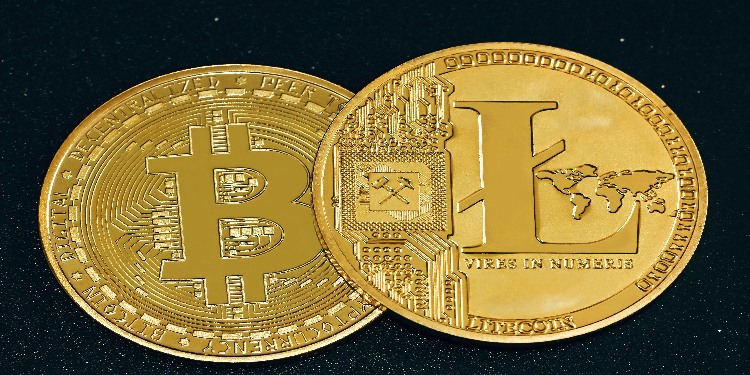The cryptocurrency landscape has evolved significantly since Bitcoin’s inception, transitioning from a niche technological curiosity to a mainstream financial instrument. Among the various digital assets that have emerged, privacy coins stand out for their focus on enhancing user anonymity and transaction confidentiality. This article delves into how privacy coins are reshaping the cryptocurrency domain by emphasizing the importance of anonymity. Visit https://swapitor.com/ to explore more about privacy coins and investing in them with the right approach. Learn more now!
Understanding Privacy Coins
What Are Privacy Coins?
Privacy coins are a subset of cryptocurrencies specifically designed to provide enhanced privacy features. Unlike traditional cryptocurrencies such as Bitcoin, where transactions are recorded on a public ledger, privacy coins employ advanced cryptographic techniques to obscure transaction details, including the sender, receiver, and transaction amount.
How Privacy Coins Differ from Regular Cryptocurrencies
In contrast to Bitcoin’s transparent ledger, privacy coins utilize complex algorithms to ensure that transaction information remains confidential. This distinction is crucial for users seeking anonymity and confidentiality, which traditional cryptocurrencies do not fully offer.
Technology Behind Privacy Coins
Privacy coins employ several cryptographic techniques to ensure anonymity. Key methods include:
- Zero-Knowledge Proofs (ZKPs): These proofs enable transactions to be validated without revealing any information about the transaction itself. ZKPs are foundational to many privacy coins, allowing for secure and private transactions.
- Ring Signatures: This technique involves mixing a user’s transaction with others, making it difficult to trace the origin. It helps obscure the identity of the sender.
- Stealth Addresses: These are one-time addresses generated for each transaction, ensuring that the recipient’s address is not publicly linked to the transaction.
Key Privacy Coins in the Market
Monero (XMR)
Monero is a leading privacy coin, renowned for its comprehensive anonymity features. It employs RingCT (Ring Confidential Transactions) to mask transaction amounts, stealth addresses to obscure recipient addresses, and a robust proof-of-work consensus mechanism. Monero’s emphasis on privacy has made it a preferred choice for users seeking complete anonymity.
Zcash (ZEC)
Zcash offers optional privacy through its zk-SNARKs (Zero-Knowledge Succinct Non-Interactive Arguments of Knowledge) technology. This allows users to choose between transparent and shielded transactions. Shielded transactions utilize zk-SNARKs to conceal transaction details, offering a high level of privacy while maintaining security and compliance with regulatory standards.
Dash (DASH)
Dash incorporates a feature known as PrivateSend, which uses a decentralized mixing protocol to obfuscate transaction origins. While Dash is primarily a cryptocurrency with enhanced privacy features, PrivateSend offers users a way to improve transaction confidentiality.
Other Notable Privacy Coins
Coins such as Verge (XVG) and Horizen (ZEN) also contribute to the privacy coin ecosystem, each employing distinct methods to ensure transaction privacy and anonymity.
The Technology of Anonymity
Zero-Knowledge Proofs
Zero-knowledge proofs are a core technology in privacy coins, allowing for transactions to be verified without disclosing the underlying data. This method ensures that while the validity of the transaction is confirmed, no specific details about the transaction are exposed to the public.
Ring Signatures and Confidential Transactions
Ring signatures mix a user’s transaction with a group of other transactions, effectively concealing the origin. Confidential transactions, used in Monero, mask the transaction amount using cryptographic methods, ensuring that transaction values remain hidden from external observers.
Decentralized Mixing Services
Decentralized mixing services further enhance privacy by combining multiple transactions into one, making it challenging to trace individual transactions. This process increases transaction confidentiality and reduces the likelihood of being linked to any specific user.
Use Cases and Applications
Financial Privacy
Privacy coins offer individuals the ability to conduct transactions without revealing sensitive information. This feature is particularly valuable for users concerned about data privacy and financial confidentiality in an increasingly surveilled digital world.
Avoiding Surveillance
In jurisdictions with stringent surveillance and data collection policies, privacy coins provide a means for users to protect their financial activities from government scrutiny and unauthorized tracking.
Corporate and Personal Use
Businesses and individuals alike utilize privacy coins to safeguard financial transactions from competitors, hackers, and other entities. Privacy coins can be instrumental in maintaining confidentiality in sensitive transactions and negotiations.
Challenges and Controversies
Regulatory Concerns
The anonymity provided by privacy coins has raised concerns among regulators. Governments and financial institutions are wary of the potential for privacy coins to facilitate illicit activities, leading to debates about the need for regulation and compliance measures.
Illicit Use
The association of privacy coins with illegal activities, such as money laundering and tax evasion, has sparked controversy. While privacy coins offer legitimate privacy benefits, their potential misuse poses challenges for broader acceptance and regulatory approval.
Technological Challenges
Privacy coins face technological hurdles, including scalability issues and interoperability with other cryptocurrencies and financial systems. Addressing these challenges is crucial for the continued growth and adoption of privacy coins.
The Future of Privacy Coins
Emerging Trends
Innovation in privacy technology continues to advance, with ongoing research into more efficient privacy-enhancing techniques. These developments aim to improve transaction privacy while ensuring compliance with evolving regulatory standards.
Integration with Mainstream Finance
As privacy coins gain acceptance, their integration with traditional financial systems could reshape the financial landscape. Potential collaborations between privacy coin developers and financial institutions may lead to new opportunities for privacy-enhanced financial services.
Potential for Increased Regulation
Regulatory scrutiny on privacy coins is likely to intensify as their use becomes more widespread. Future developments may include stricter regulations and compliance requirements, which could impact the adoption and evolution of privacy coins.
Conclusion
Privacy coins are at the forefront of redefining cryptocurrency by prioritizing user anonymity and transaction confidentiality. While they offer significant benefits in terms of privacy, they also face challenges related to regulation and technological integration. As the cryptocurrency landscape continues to evolve, privacy coins will play a crucial role in shaping the future of digital finance.
David Prior
David Prior is the editor of Today News, responsible for the overall editorial strategy. He is an NCTJ-qualified journalist with over 20 years’ experience, and is also editor of the award-winning hyperlocal news title Altrincham Today. His LinkedIn profile is here.


![7 Best POS Software in the UK [2026 Edition]](https://todaynews.co.uk/wp-content/uploads/2026/02/7-Best-POS-Software-in-the-UK-2026-Edition-360x180.png)





















































![7 Best POS Software in the UK [2026 Edition]](https://todaynews.co.uk/wp-content/uploads/2026/02/7-Best-POS-Software-in-the-UK-2026-Edition-120x86.png)

![7 Best POS Software in the UK [2026 Edition]](https://todaynews.co.uk/wp-content/uploads/2026/02/7-Best-POS-Software-in-the-UK-2026-Edition-350x250.png)

















